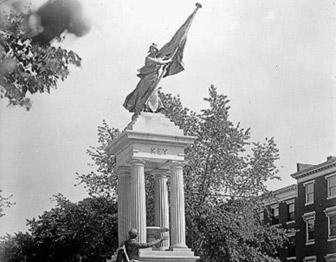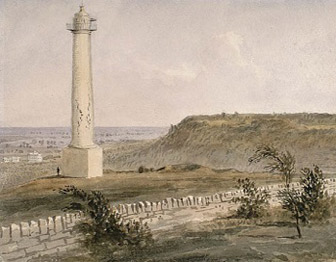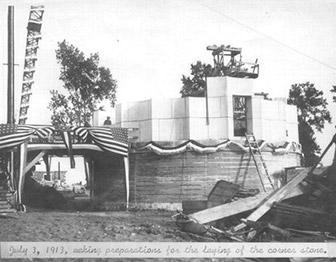The memory of the War of 1812 lingered long after the guns fell silent. The Treaty of Ghent ended the fighting, but the consequences of the war cast a long shadow over the succeeding decades. With formal military engagements at a close, participants began the struggle to shape its legacy. The stories told about the conflict often differed from the historical record of events themselves.
Veterans, politicians, historians, and others engaged in an active process of deciding what to remember about the war. This was a dynamic, and often contentious, process. With so many groups involved in the fighting and competing interests at play, the creation of the war's memory proved to be a contested territory. Narratives surrounding the War of 1812—who would be celebrated and who pushed aside, which events would be seen as turning points, and which would be forgotten—shaped how future generations understood the conflict.
For Indigenous peoples, the impact of the war and the signing of the Treaty of Ghent was profound. Although the treaty was meant to restore certain rights and possessions, the realities of post-war America marked a significant decline in their autonomy and territories. With the British no longer as an ally, many tribes found themselves isolated and vulnerable to American expansion. As settlers pushed westward, Indigenous communities faced increased encroachments on their lands, leading to further displacement and conflicts.
As the war's legacy was formed, a strong sense of patriotism emerged among American citizens. People began to identify more as Americans rather than just as residents of their states, such as Marylanders or Virginians. The War of 1812 played a vital role in fostering this national pride. Victories on the battlefield and naval engagements catalyzed a sense of unity and collective identity, creating a narrative of what it meant to be "American."
However, the irony of this newfound patriotism stands out starkly against the backdrop of social injustices still prevalent in the nation. Chattel slavery was still legal, meaning millions of African Americans were denied basic rights and freedoms. Women, too, had little to no rights, remaining excluded from the political process and societal roles that defined the American identity. Meanwhile, the nation was actively taking land and rights from Indigenous peoples, further complicating the story of American pride.
The celebration of a unified American spirit thus coexisted with deep contradictions. As one group embraced their identity as Americans, countless others struggled under systems of oppression and displacement. The legacy of the War of 1812, therefore, was not just one of national pride; it was also a complex narrative of exclusion, resistance, and the ongoing fight for rights and recognition by those marginalized in the quest for a unified American identity.
Last updated: November 26, 2024




